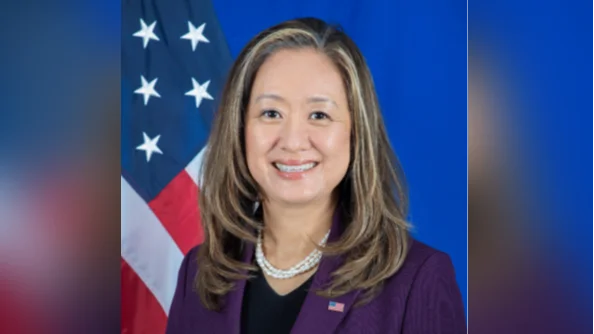At a seminar held in Colombo, U.S. Ambassador Julie Chung highlighted the ongoing collaboration between Sri Lanka and the United States in the soy trade sector. The event, titled “Powering Partnerships: Sri Lanka-U.S. Soy Trade Mission,” brought together representatives from both countries to discuss progress and future opportunities in agricultural trade.
Ambassador Chung opened her remarks by thanking the American Soybean Association (ASA) and the World Initiative for Soy in Human Health (WISHH), along with industry leaders Gena Perry, Alan Poock, Dr. Athula Mahagamage, and other stakeholders for their work. She welcomed U.S. trade delegates who traveled to Sri Lanka for the mission.
Chung noted that the partnership among WISHH, ASA, and Sri Lanka began eight years ago and has since grown into a strong relationship beyond just trade. Through this collaboration, Sri Lankan food and feed sectors have gained knowledge transfer, capacity building, and market insights from U.S. partners.
“One of the most compelling examples of this partnership’s success is the local poultry industry. Poultry is one of Sri Lanka’s most significant agricultural sectors, not only in terms of economic value but also in terms of its importance to food and nutritional security,” Chung said.
She pointed out that U.S. soy products have played a key role in this growth: “Sri Lanka imported USD$127 million of U.S. soybean meal in 2024 alone, marking a 30 percent increase from the previous year. With the United States holding an impressive 84 percent market share, it is clear that Sri Lankan producers place exceptional trust in U.S. Soy for its superior quality, nutritional profile, and reliable supply chain.” She added that most animal feed production supports poultry farming and that soy-based foods are important for dietary protein needs.
Chung also emphasized sustainability efforts within Sri Lanka’s poultry sector: “Fourteen major producers proudly use the ‘Fed with Sustainable U.S. Soy’ label, a significant first in South Asia.” She explained this adoption demonstrates commitment to ethical sourcing under standards like the U.S. Soybean Sustainability Assurance Protocol.
The ambassador acknowledged challenges faced by Sri Lanka due to recent economic instability affecting feed supplies and costs but recognized continued resilience within the industry.
“I would like to reiterate the partnership between Sri Lanka and the United States is an excellent example of the power of collaboration,” she said. Chung encouraged all participants at the seminar—farmers, business professionals, innovators—to continue pursuing new opportunities together through events like these trade missions.
She concluded by thanking staff from the U.S Department of Agriculture at the embassy for their role in connecting businesses across both nations.
“I wish you great success and look forward to hearing about productive outcomes from tonight,” Chung said.

